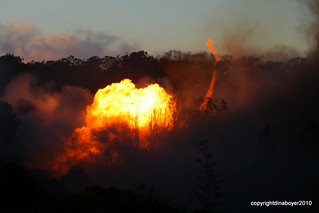 We don't call it "natural oil" or "natural coal." So why do we refer to methane gas - especially the gas that's been fracked - as "natural"?
We don't call it "natural oil" or "natural coal." So why do we refer to methane gas - especially the gas that's been fracked - as "natural"?
Fracking is the process of drilling down into the earth before a high-pressure water mixture is directed at the rock to release the gas inside. Water, sand and chemicals are injected into the rock at high pressure which allows the gas to flow out to the head of the well. [...]If all that isn't enough, fracked gas also destabilizes our climate and causes earthquakes. Fracking now produces half of the oil and a majority of the gas produced in the United States.
The extensive use of fracking in the US, where it has revolutionised the energy industry, has prompted environmental concerns.
The first is that fracking uses huge amounts of water that must be transported to the fracking site, at significant environmental cost. The second is the worry that potentially carcinogenic chemicals used may escape and contaminate groundwater around the fracking site.
This isn't a semantic debate - it has a real impact in moving public opinion. Ask voters if they want more natural gas and most say yes. Ask if they support fracking and a plurality oppose it.
If you're trying to convince voters to oppose fracked gas pipelines or power plants, call it fracked gas. It's accurate, it communicates the damage caused by fossil fuels, and it's politically effective.

No comments:
Post a Comment